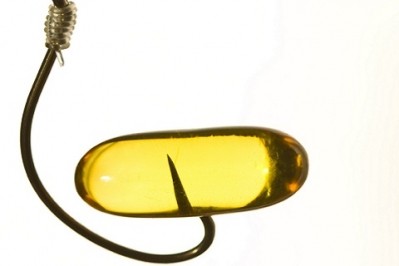Of mice and men: Experts challenge omega-6, omega-3 mouse gut health study

In response to findings of the study, published in the British Journal of Nutrition, leading omega-3 expert Prof Bruce Holub from the University of Guelph said that there was plenty of human data to challenge the findings from this lab mouse study.
“Human studies trump laboratory experiments with rodents!” he said.
Data
Scientists from the University of British Columbia (UBC) in Canada reported that a diet with 30% omega-6 promoted changes in the gut microflora, which corresponded to weight gain and the infiltration of inflammatory cells in the gut.
Supplementation with omega-3 reversed the gut microflora changes, and restored the inflammatory cell infiltration, but an increase in oxidative stress in the old mice, “which could exacerbate gastrointestinal disorders in the elderly”, wrote the authors, led by Sanjoy Ghosh, an assistant professor of biology at UBC.
‘Pills cannot fix it’
In a UBC press release, Ghosh states: “Our hypothesis is that levels of omega-6 are so high in our bodies that any more unsaturated fatty acid – even omega-3, despite its health benefits – will actually contribute to the negative effects omega-6 PUFA have on the heart and gut.
“Bottom line is it's too much unsaturated fat, and our body doesn't know what to do with it.”
Ghosh added that he does not believe that fish oil supplements are an answer.
"Here's my opinion: Lower intake of omega-6 PUFA while increasing your consumption of fish and foods where omega-3 occurs naturally, as seen with the Mediterranean diet.
“Improper diet cannot be fixed by a pill. Polyunsaturated fats should be brought down in our diet, olive oil should be increased, and saturated fats should be increased – they are the most natural, and have been part of our evolution since the beginning of time.”
Response
In response to the study, and an article in The Vancouver Sun that ran with the headline, “Fish oil supplements may do more harm than good” (January 23, 2013), Prof Holub cautioned: “Firstly, this study was conducted in mice, not humans.
“Secondly, quality fish oil supplements containing omega-3 fatty acids are sold in encapsulated form to protect the omega-3s from oxidation, not as a liquid, non-protected fish oil added to a dry diet as employed by these researchers,” he added.
“Thirdly, the fish oil, while yielding more oxidation, actually reduced the infiltration by inflammatory cells in the intestines of the mice when they were fed maize oil (containing omega-6 fatty acids), a fact that was not mentioned in the Sun article.
“Fourthly, the Dietitians of Canada have advised Canadians not to consume more than 10% of their dietary energy as polyunsaturated omega-6 fatty acids. In this study, 30% of the rodents’ diet was comprised of polyunsaturated omega-6 fatty acids.
“Fifthly, regarding the alleged and unproven “harm” resulting from fish oil intake, the Sun story stated that “…unpublished results point to a similar effect on cardiac tissues.” Academics and the teachings of authentic scientific material rely on peer-reviewed journal articles published in legitimate and high quality medical and scientific journals, not on unpublished data.
“Finally, the Sun article stated that ‘…oils rich in omega-6 fatty acids inflicted damage to the hearts of rats and neonatal pigs,’ which was not reported in the recent paper by this research group. The major Nurses' Health Study from Harvard as published in the New England Journal of Medicine actually found a significantly lesser risk of heart disease with higher intakes of omega-6 polyunsaturates.”
Prof Holub is also Chief Scientific Officer for Nutrasource Diagnostics Inc.
GOED: ‘Impossible to interpret the results’
Harry Rice, PhD, VP of regulatory & scientific affairs for the Global Organization for EPA and DHA Omega-3s (GOED), said that it was, “not clear what role small intestinal oxidative stress plays in the pathogenesis of small intestinal diseases in old mice, not to mention humans”.
Dr Rice also pointed out that, within the last two years, both the European Food Safety Authority (EFSA) and the Norwegian Scientific Committee for Food Safety (VKM) published safety evaluations about omega-3 LC-PUFAs and reported no evidence that they induce changes in lipid peroxidation which might raise a concern with respect to risk for any disease.
“Methods used to assess lipid peroxidation in tissue samples are indirect and the evidence that the methods actually reflect lipid peroxidation in vivo is limited,” he said.
“Due to the lack of validation of lipid oxidation or oxidative stress endpoints as biomarkers for disease or health-compromised states, or risk thereof, it is not possible to interpret the present results in old mice to determine any potential hazard to health in humans from ingestion of EPA & DHA.”
Source: British Journal of Nutrition
Published online ahead of print, doi: 10.1017/S0007114512005326
“Diets rich in n-6 PUFA induce intestinal microbial dysbiosis in aged mice”
Authors: S. Ghosh, E. Molcan, D. DeCoffe, C. Dai, D.L. Gibson
















